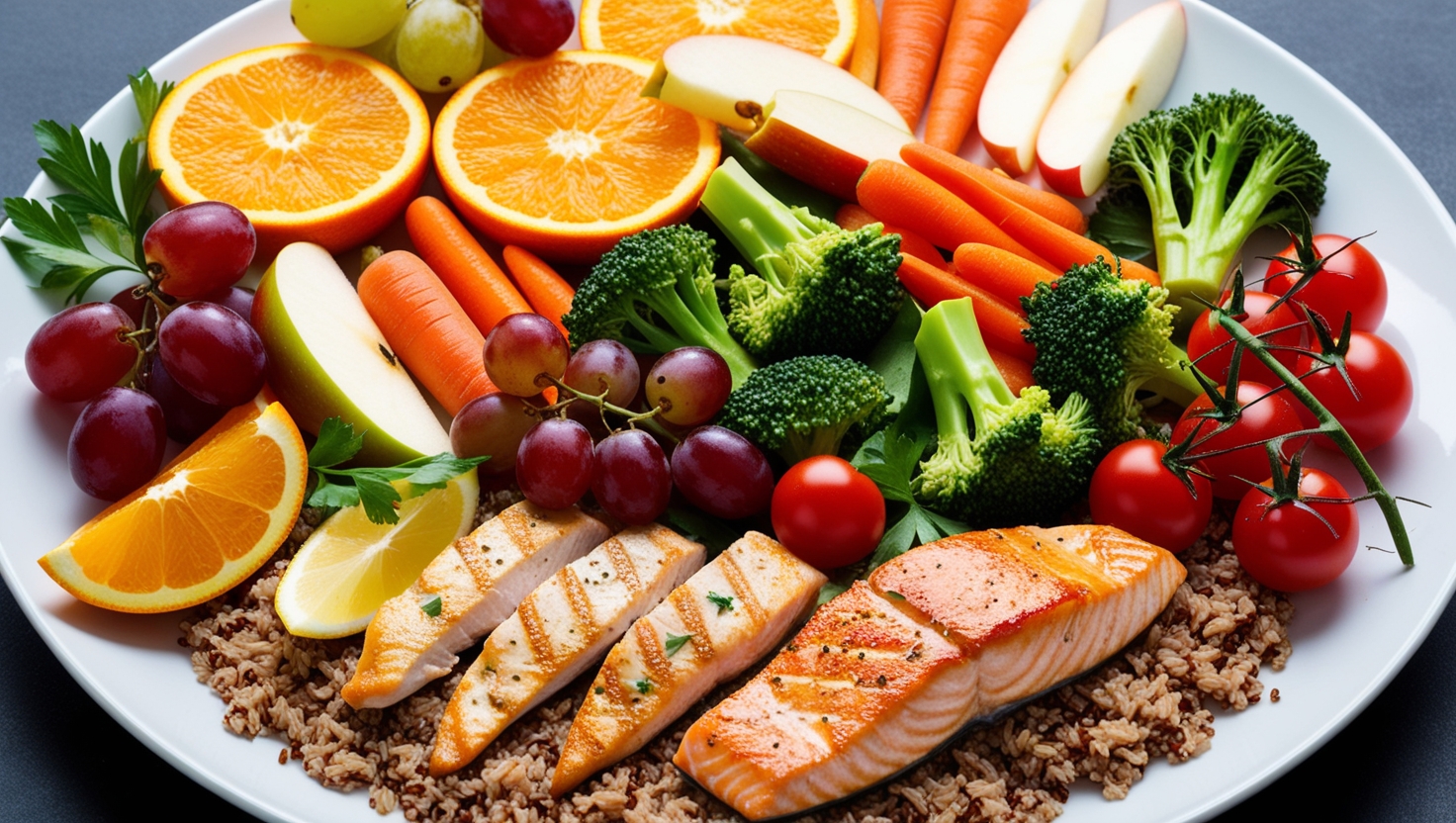المدونة
How to Prevent Obesity with Smart Nutrition Choices

Obesity is becoming an increasingly serious issue for both children and adults, leading to significant health risks such as diabetes, heart disease, and joint problems. Fortunately, one of the most powerful tools for preventing obesity is proper nutrition.
By making informed food choices, creating balanced meals, and building mindful eating habits early, you can dramatically reduce the risk of obesity and promote long-term health. In this guide, we’ll explore five key strategies that will help you and your family prevent obesity through better nutrition.
1. Focus on Balanced, Nutrient-Dense Meals
Building meals that are balanced and nutrient-rich is one of the most important foundations for preventing obesity.
A truly balanced meal ensures your body gets the essential proteins, fibers, healthy fats, vitamins, and minerals it needs to function optimally—without overloading on empty calories.
It’s not just about eating less; it’s about eating smarter.
Key Components of a Balanced Meal:
- البروتبن: Essential for building and repairing body tissues, lean proteins like chicken, turkey, fish, beans, and lentils help keep you full and satisfied for longer periods.
- الألياف: Found in fruits, vegetables, and whole grains, fiber improves digestion, stabilizes blood sugar, and helps control hunger levels naturally.
- الدهون الصحية: Good fats from foods like avocado, olive oil, nuts, and seeds are vital for brain health, hormone regulation, and feeling full.
- Colorful Vegetables: A wide variety of colorful veggies provides a spectrum of vitamins, minerals, and antioxidants, which boost the immune system and overall vitality.
Tip: Aim to fill half your plate with colorful vegetables at every meal. The more natural color on the plate, the more nutrients you’re getting.
2. Limit Processed and High-Calorie Foods
Processed foods and high-calorie convenience meals often contain large amounts of unhealthy fats, sugars, sodium, and preservatives—all of which contribute heavily to obesity.
While these foods are tempting because they are quick and flavorful, regularly consuming them leads to poor health outcomes over time.
Healthy Substitutes for Processed Foods:
- Whole Fruits Instead of Sugary Snacks: Fresh fruits offer natural sweetness along with fiber and nutrients, making them a much healthier choice than candies and pastries.
- Homemade Meals Instead of Fast Food: Preparing meals at home gives you complete control over the ingredients and portion sizes, leading to healthier eating habits.
- Whole Grains Instead of Refined Carbs: Choosing brown rice, quinoa, oats, and whole-wheat bread instead of their refined counterparts helps maintain stable blood sugar and prevents overeating.
Tip: The fewer ingredients a packaged food has—and the more you can recognize them—the better it is for you.
3. Control Portion Sizes
Even when eating healthy foods, consuming too much can lead to weight gain.
Understanding and practicing portion control ensures you’re providing your body with just what it needs—no more, no less.
Tips for Portion Control:
- Use Smaller Plates: Research shows that smaller plates make portions appear larger, helping you feel satisfied with less food.
- Avoid Eating Straight from Packages: Measuring or portioning out snacks beforehand prevents mindless overeating and makes it easier to track how much you’re eating.
- Practice Mindful Eating: Eating slowly, savoring each bite, and tuning in to your body’s hunger and fullness cues can naturally prevent overeating.
Tip: Before reaching for seconds, pause for a few minutes. Giving your body time to register fullness can prevent unnecessary extra calories.
4. Encourage Regular Meals and Healthy Snacking
Skipping meals may seem like a way to cut calories, but it often leads to overeating later on or choosing unhealthy, high-calorie snacks.
Instead, eating regular, balanced meals and planning for healthy snacks between meals keeps your metabolism active and hunger levels stable.
Healthy Snack Ideas:
- Nuts and Seeds: A small handful provides healthy fats, protein, and fiber—perfect for keeping you full and energized.
- Yogurt and Fruit: Greek yogurt paired with berries or banana slices offers a tasty and protein-rich snack.
- Veggies and Hummus: Crunchy, water-rich veggies like carrots, cucumber, and bell peppers paired with hummus make a fiber-filled snack that’s also satisfying.
- Whole-Grain Crackers: When paired with a slice of cheese or nut butter, whole-grain crackers make a smart, balanced mini-meal.
Tip: Planning ahead by prepping snacks in advance can prevent unhealthy last-minute choices.
5. Promote Hydration and Limit Sugary Drinks
Proper hydration plays a huge role in maintaining a healthy weight, yet sugary beverages are one of the largest sources of hidden calories in the diet.
Replacing sodas, sugary juices, and energy drinks with water can drastically reduce daily calorie intake and support a healthy metabolism.
Hydration Tips:
- Water First: Encourage drinking a glass of water before meals and as the first choice when thirsty.
- Infused Water for Flavor: Add slices of lemon, orange, berries, or cucumber to a jug of water to make it naturally refreshing without adding sugar.
- Cut Back on Sugary Drinks: Gradually decrease consumption of sugary sodas, sweet teas, and flavored coffees, replacing them with healthier alternatives like herbal teas or plain milk.
Tip: Often when we feel “hungry,” we’re actually just thirsty. Drinking water regularly can help prevent unnecessary snacking.
Preventing obesity is not about restrictive dieting or extreme changes—it’s about building lasting habits that prioritize balance, mindfulness, and smart nutrition. By focusing on nutrient-dense, balanced meals, reducing processed foods, managing portion sizes, encouraging healthy snacking, and promoting hydration, you can create a strong foundation for lifelong health. Start applying these small, daily changes today, and over time, they’ll add up to big benefits for you and your family’s well-being.










